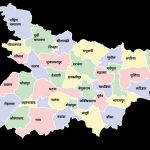How to Choose a Career?

One of the biggest mistake that individual make in their careers is to go aimlessly through study or work in an entry-level position with no clear goals.
They wait to finish education, before taking a stab at other opportunities than finding a well-paying job opportunities.
It makes too late to achieve the goal. Since a person’s career is a very personal choice and reflects his or her personality, creativity, interests, and goals, it is sometimes beneficial if one begins by choosing a career path, instead of a career.
Ask yourself what do you want to do? What do you like to do? What is your aim? What you want to be? Fins out the answer. How to achieve your goal? Its all depend on when and how you choose a career.
Think about career before you start graduation. This will help you to choose a career.
If a person has a strong Realistic type, he or she may like to work with his/her hands and use physical skills.
The person may like to use tools, repair things, work outdoors, and have a desire for adventure.
Possible career paths include Engineer, Military, Mechanic, or Skilled Trades Person.
The Investigative personality tends to focus on ideas, investigation, research, and technical activities.
Occupations such as Physician, Analyst, Technical Writer and Medical Technologist are found in this code.
People who are a strong Social Type like to engage in Care-Giving activities, Group Activities and Social Events, Teaching, and Leadership. Career paths include preparation as a Counselor, Teacher, Religious Worker, Psychologist or Speech Therapist.
The Artistic Type person is usually creative, intuitive, Designers, Media and communication workers, expressive and a non-conformist. Typical occupations include Musician, Writer, Authors, Interior Decorator, Photographer, Editors or Actor/Actress. Artistic people are the most creative of the six personality types.
The Conventional vocational personality likes conventional jobs such as Bookkeeper, Financial Analyst, Banker, Accountant, or Tax Expert. They have arithmetic abilities are organized and efficient.
Some people can market themselves to employers and communicate their skills and abilities so effectively they eventually wind up creating their “ultimate job.”
today, people do not choose one career. They choose career paths that can twist and turn to meet the changing economy.
Building career paths and practicing the art of personal marketing will be an invaluable tool in choosing flexible career options in the 21st Century.
A common barrier facing the recent high school or college graduate is that many times the person is not aware of his or her own strengths and abilities that translate into marketable skills.
The key to a successful job search is marketing transferable skills to prospective employers and contacts.
A wide variety of jobs do exist in today’s marketplace for general and liberal arts graduates in such fields as sales, management, and government.
If the job seeker expresses his or her skills in terms of specific achievements, he or she becomes more credible in the eyes of an employer, and it will make a significant difference in procuring employment.
Thinking creatively and globally, as well as demonstrating the value of the experiences gained in studying abroad are definite advantages in securing employment.
Focus on your interest, skills, things you want to do and choose the path to achieve your career goal by keeping these things in your mind.
Photo by Brooke Lark on Unsplash (Free for commercial use)
Image Reference: https://unsplash.com/photos/nMffL1zjbw4










Leave a Reply